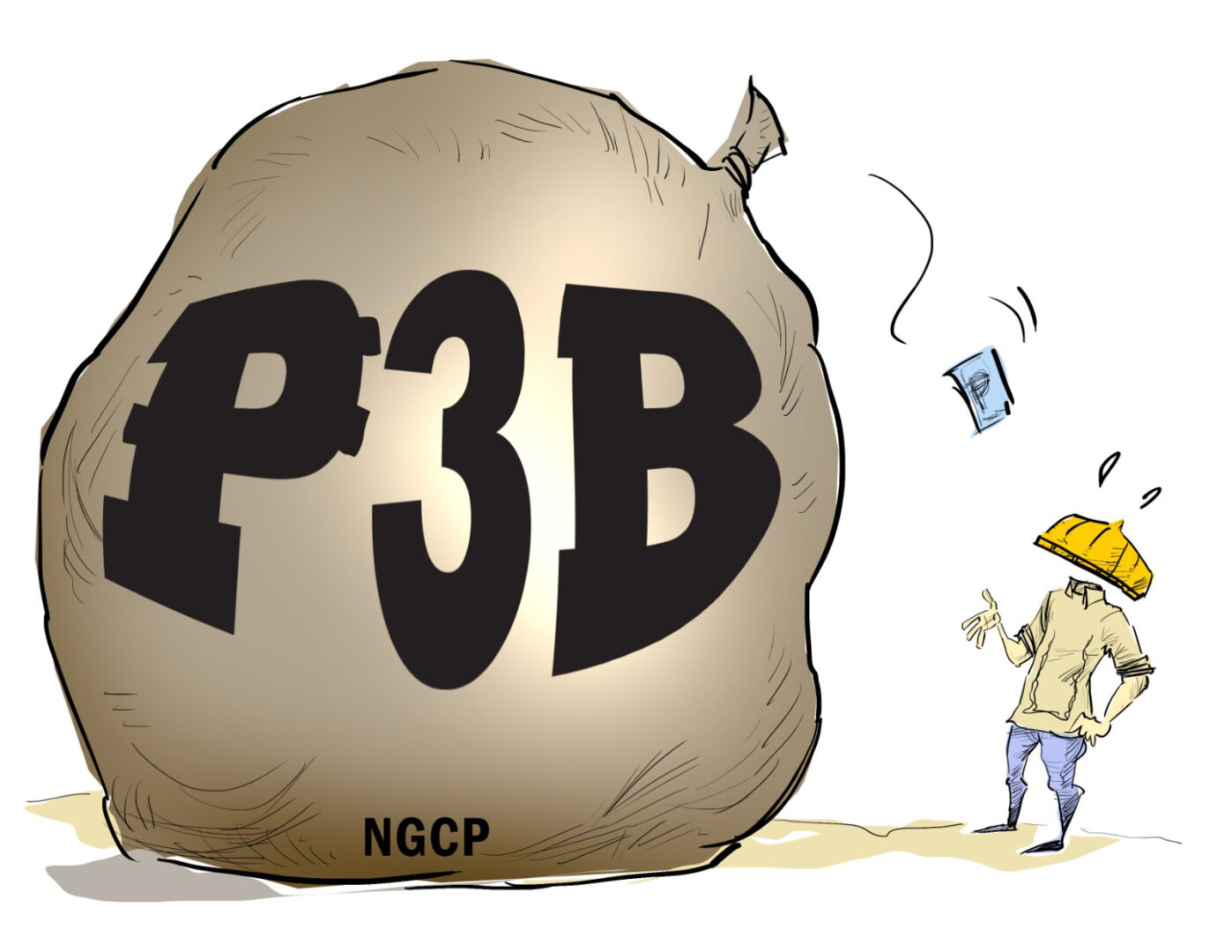While the National Transmission Corp. or TransCo concessionaire National Grid Corp. of the Philippines has been awash with cash as reflected in its billions of pesos of early dividends, it has not paid the government P3 billion plus interest on transmission fees before 2009 when the private firm took over operations of the power grid.
The amount represents collections from power plants to which TransCo is entitled but remains unremitted.
Under a privatization program, former President Gloria Macapagal-Arroyo approved a plan to privatize TransCo through a 25-year Operation and Management Concession Agreement. The bidding for the license to run the Philippine power grid was won by the NGCP in 2007, while Congress approved the bicameral resolution granting its franchise in 2008, and PGMA signed RA8511 into law, granting NGCP its franchise. On 15 January 2009, TransCo turned over the management of the country’s power grid to NGCP.
TransCo, owner of the electricity network, and energy assets holding firm Power Sector and Liabilities Management Corp. have been demanding the payment of the amount.
An energy official said the government can use the money to reduce power rates by deducting this from the monthly bills under the item universal charges.
Universal charges include the so-called stranded costs or payables to Independent Power Producers that PSALM assumed from state firm National Power Corp.
Instead, the energy official suspects NGCP used the withheld payments for its benefit to consistently pay fat dividends to its shareholders.
In the recent Senate inquiry on the power industry, NGCP said of its P20.3 billion net income in 2019, P15 billion, or around 74 percent, went to dividends.
In 2017, around 90 percent of its P20.6 billion net income went to dividends. For 2015, the NGCP distributed around 93 percent of its P22.5 billion profit as payouts to shareholders.
The company particularly made its investors happy in 2014, when it said dividends exceeded its net income or P24 billion handed to stockholders against P22 billion in profit.
Counting the potential interest, an energy source said the receivables from NGCP have now ballooned to more than P6 billion.
NGCP’s rampant violation of the provisions of the concession agreement had resulted in a serious financial drain on the government. The provisions of the 2009 deal, which included the settling of all arrears such as the TransCo collectibles, also provided separate audited accounts for each related business and the need for NGCP to hold an initial public offering that it skirted through the back door listing of a holding company.
TransCo’s financial claim from NGCP was upheld by an opinion on 18 April 2012 by the Office of the Government Corporate Counsel.
“TransCo has already acquired immutable vested rights over the contested revenues,” the OGCC decision indicated.
“Public policy considerations and the public nature of the receivables impose upon TransCo the obligation to recover the disputed amount for its benefit,” it added.
NGCP holds a renewable 25-year concession contract and a 50-year franchise to operate the power transmission network in the country.
Since the agreement was signed in 2009, the contract will run until 2034 and from then, the government has the option to renew it for another 25 years.
An audit that has long been blocked by NGCP should happen and from there, the government should muster the will to take the necessary steps if abuse is found in the performance of the provisions of the concession agreement.
